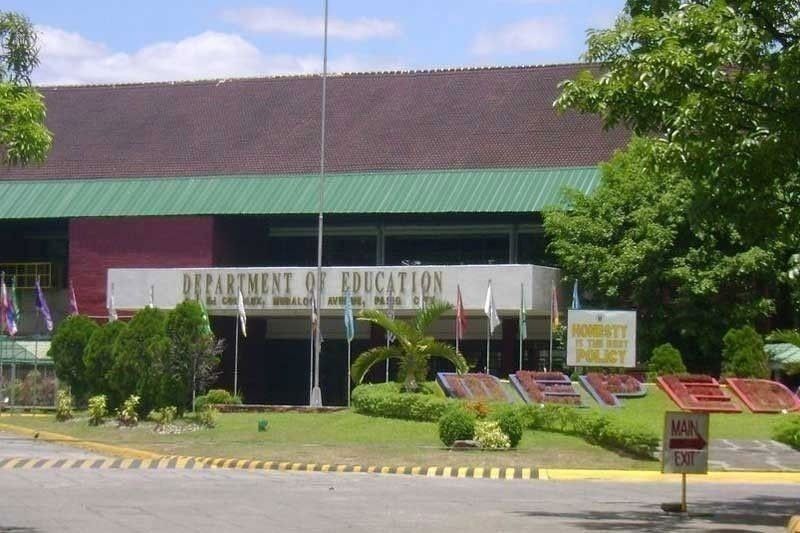
Upgrade to High-Speed Internet for only ₱1499/month!
Enjoy up to 100 Mbps fiber broadband, perfect for browsing, streaming, and gaming.
Visit Suniway.ph to learn
Brix Lelis - The Philippine Star
May 16, 2025 | 12:00am
MANILA, Philippines — Following the 70th anniversary of the establishment of diplomatic relations between the Philippines and Germany last year, the two nations signed on Wednesday a new defense agreement boosting bilateral relations between the two countries.
Defense Secretary Gilberto Teodoro Jr. and German Federal Defense Minister Boris Pistorius sealed the deal in Berlin, which allows various joint military activities.
The Department of National Defense said the signing came after the visit of Pistorius to the Philippines in August 2024, wherein Teodoro and the German defense minister agreed to pursue an overarching framework to advance bilateral defense partnership, pursuant to President Marcos’ directive on strengthening the country’s international ties.
The arrangement builds on the 1974 Administrative Agreement concerning training of Armed Forces of the Philippines personnel in Germany, one of the longest defense cooperation frameworks of the Philippines with another country, and expands cooperation between the two defense and military establishments in the fields of cyber security, defense armaments and logistics, and United Nations peacekeeping, among others.
After the signing, both defense ministers will convene the 3rd Philippines-Germany Security and Defense Staff Talks to review and concretize proposed joint activities and initiatives to be implemented under the arrangement in the coming year.
Teodoro was also in Berlin to attend the UN Peacekeeping Ministerial Meeting to reaffirm the Philippines’ commitment toward global peace and security as one of the founding member-countries and a troop-contributing nation of the UN.
The Philippines has a current bid for a non-permanent seat at the UN Security Council, for which Teodoro expressed the country’s readiness to play an active role in addressing global security concerns.
Philippines, Japan eye closer collaboration on ICT
Meanwhile, the Philippines and Japan expressed readiness to collaborate more closely on information and communications technology (ICT), the Japanese embassy in Manila said yesterday.?
During a meeting on Tuesday, Japanese Ambassador Kazuya Enzo and Department of Information and Communications Technology Secretary Henry Rhoel Aguda exchanged views on the progress in the field of ICT in the Philippines and opportunities for further collaboration between the two countries.
Endo introduced Japan’s various public and private initiatives over the years in this field, such as Open Radio Access Network, cybersecurity, undersea cables, and digital terrestrial broadcasting systems.
Aguda expressed appreciation for Japan’s contributions to date and hopes for more avenues for cooperation in support of the digitalization goals of the Philippines.
The ambassador and Aguda expressed readiness to collaborate more closely in advancing the strong economic relations between Japan and the Philippines through more comprehensive cooperation in ICT.
Maritime security
In another development, the Philippines highlighted its strategic approaches to maritime security in the country’s maritime zones, underscoring firm and consistent advocacy for international law and the rules-based international order.
A side event held during the 10th Our Ocean Conference in South Korea, titled “Reconsidering Ocean Security and Maritime Statecraft in the 21st Century,” was organized by the Center for Strategic and International Studies and the Stimson Center aimed to examine and discuss the changing nature of maritime security in the 21st century amid global challenges that threaten the established norms of ocean governance and trade.
Representing the Philippines in the panel of experts was Department of Foreign Affairs Maritime and Ocean Affairs Assistant Secretary Louis Alferez, who shared the Philippines’ perspective in handling maritime challenges, particularly in the South China Sea and West Philippine Sea.
Alferez emphasized the Philippines’ firm and consistent advocacy for the UN Charter, United Nations Convention on the Law of the Sea, and the 2016 South China Sea Arbitral Award, the use of effective diplomacy to produce meaningful outcomes, the enhancement of partnerships with like-minded countries regionally and globally, and the national effort to build the domestic capacity and capability to enable Philippine authorities to protect maritime interests.
Alferez emphasized that “what occurs in the South China Sea has the potential to impact not just the countries in the region but also the rest of the world.”
Meanwhile, the Department of Environment and Natural Resources (DENR) has joined forces with the National Intelligence Coordinating Agency (NICA) and other government bodies to investigate reports that sand dredged from Philippine coastal areas is being used in China’s reclamation projects in the disputed West Philippine Sea.
Malacañang confirmed on Wednesday that President Marcos has ordered a thorough probe following NICA’s disclosure during a Senate hearing.
NICA Deputy Director General Ashley Acedillo earlier revealed that sand extracted from places such as Manila Bay and other Philippine localities was transported to sites where China is conducting large-scale island-building operations within the country’s contested maritime zones.
“We can’t disclose the full details yet because the issues involved are quite sensitive. But we have spoken with the DENR, and they will coordinate closely with NICA and the Philippine Coast Guard,” Palace press officer Claire Castro said.
Officials warned that those found responsible – including local government units where illegal dredging occurred – may face charges under the Philippine Maritime Zones Act and the Philippine Mining Act. – Pia Lee-Brago, Christine Boton

 3 weeks ago
37
3 weeks ago
37



